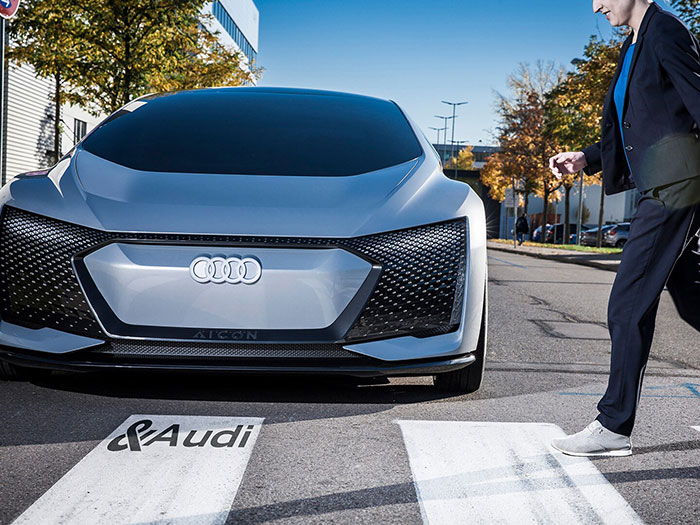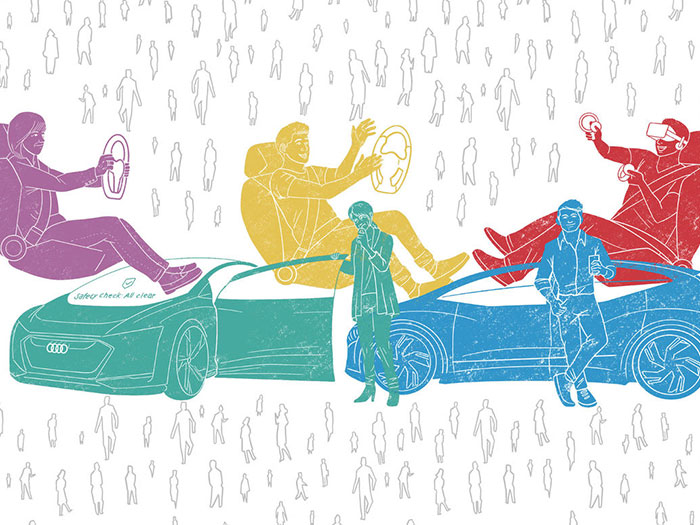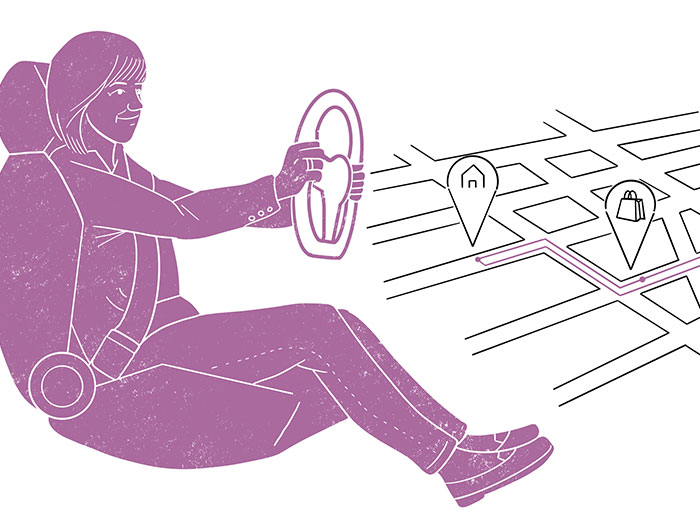Autonomous driving: from curiosity to reluctance, here is how it is perceived
Audi interviewed 21,000 people as part of its study “The Pulse of Autonomous Driving”, in order to understand their attitude toward self-driving vehicles.

China, South Korea, France, Germany, Japan, Italy, the UK, the US and Spain: 21,000 people from these countries were interviewed by Audi, with support from the specialists at Ipsos, for the report “The Pulse of Autonomous Driving”.
The study focused on rational and emotional arguments, values and lifestyles in order to understand their influence on the way autonomous driving is perceived. This topic is a major talking point across borders: 90 percent of respondents have heard about the technology.
The results of the research show great interest in and high curiosity about autonomous driving: 22 percent say that they know a lot about this technology, but only 8 percent feel able to provide a precise definition for it. In any case, more than half of respondents would like to test autonomous driving for real.
The benefits of autonomous driving
In general, all interviewees saw potential advantages in terms of efficiency and safety, as well as accessibility, particularly for the elderly, children, persons with handicaps and people without a driving license.
In terms of the time spent in the vehicle, interest is highest in enjoying the view, reading, listening to music and watching movies, followed by talking to other passengers.
Reluctance to give up control

Despite the interest and recognised benefits, autonomous driving is a big step in the relationship between man and machine: 41 percent of respondents report that they are suspicious of autonomous driving, and more than a third are anxious.
The concerns derive mainly from handing over control to the car in the event of an emergency, and one major question prevails: will the car be able to assess all situations independently? Over half of the interviewees had heard of accidents involving self-driving vehicles, but two thirds of these have not changed their attitude to autonomous driving.
The opinions, country by country
In general, the people who are most looking forward to autonomous vehicles are young, well-paid and well-educated. The opinions also vary by country: the Chinese are euphoric about the prospect of autonomous driving, as they are in South Korea. The Spanish and Italians are the pioneers in Europe. Germans and the French are still cautious, like Americans, the Japanese and the British.
The study then analysed other aspects related to the values and lifestyles of the potential users, thus managing to delineate five different profiles for autonomous driving, ranging from rejection to enthusiasm. Let’s take a quick look at them.
The suspicious driver

The suspicious drivers (14 percent) prefer to have their hands on the wheel. They are very attentive to safety, and fundamentally critical of the unknown – and this also applies to new technologies. They therefore prefer the status quo, and have no emotional attachment to the car, which is seen as something for getting from A to B. They will have no interest in self-driving cars until they become a mass phenomenon.
The reluctant
The reluctants (24 percent) have low interest in autonomous driving and do not know much about it, but are still curious. For example, these reluctants can imagine the autonomous car taking control on a highway or when parking, so long as they can intervene at any time. Safety is the key point for them, and they are less in search of adventure.
The co-pilot
Co-pilots (30 percent) basically regard autonomous driving in a positive light. However, they do not see things in black and white. They expect greater safety – validated by testing under real conditions –and more convenience from autonomously driving cars, but wish to be able to intervene at all times. They would also like to have their own car for autonomous driving, rather than sharing the vehicle.
The trendsetter
Trendsetters (16 percent) love new technologies and would like to try out autonomous driving as soon as possible. The reason, above all, is that they believe it will improve their image and reputation. There is obviously interest in the technology and safety aspects, as well as the systems and the algorithms behind an autonomous vehicle.
The tech-savvy passenger

Tech-savvy passengers (16 percent) would ideally like to get aboard self-driving cars today. For them it is only a question of time before this technology becomes reality, and they have a very flexible, open approach to it. They are the only user type for whom the loss of control is not the principal concern; their reservations are more about the lack of a legal framework. They are not worried of being merely a passenger, and believe in easier access to mobility for all, greater convenience and above all greater safety on the road.
Knowledge is key
The results of this study make it clear that there is room for more knowledge about autonomous driving, reinforcing know-how about its technical aspects, the benefits for society and its limits. The potential is high, but appropriate expectations must be established. People’s attitudes are very different depending on their context, and it is necessary to take into account the specific needs of each region. In any case, the three key areas are safety, a legal framework, and the reliability of the technologies: it seems clear that interdisciplinary co-operation between all sectors of society, from industry to politics, is required.
Source: Audi AG
